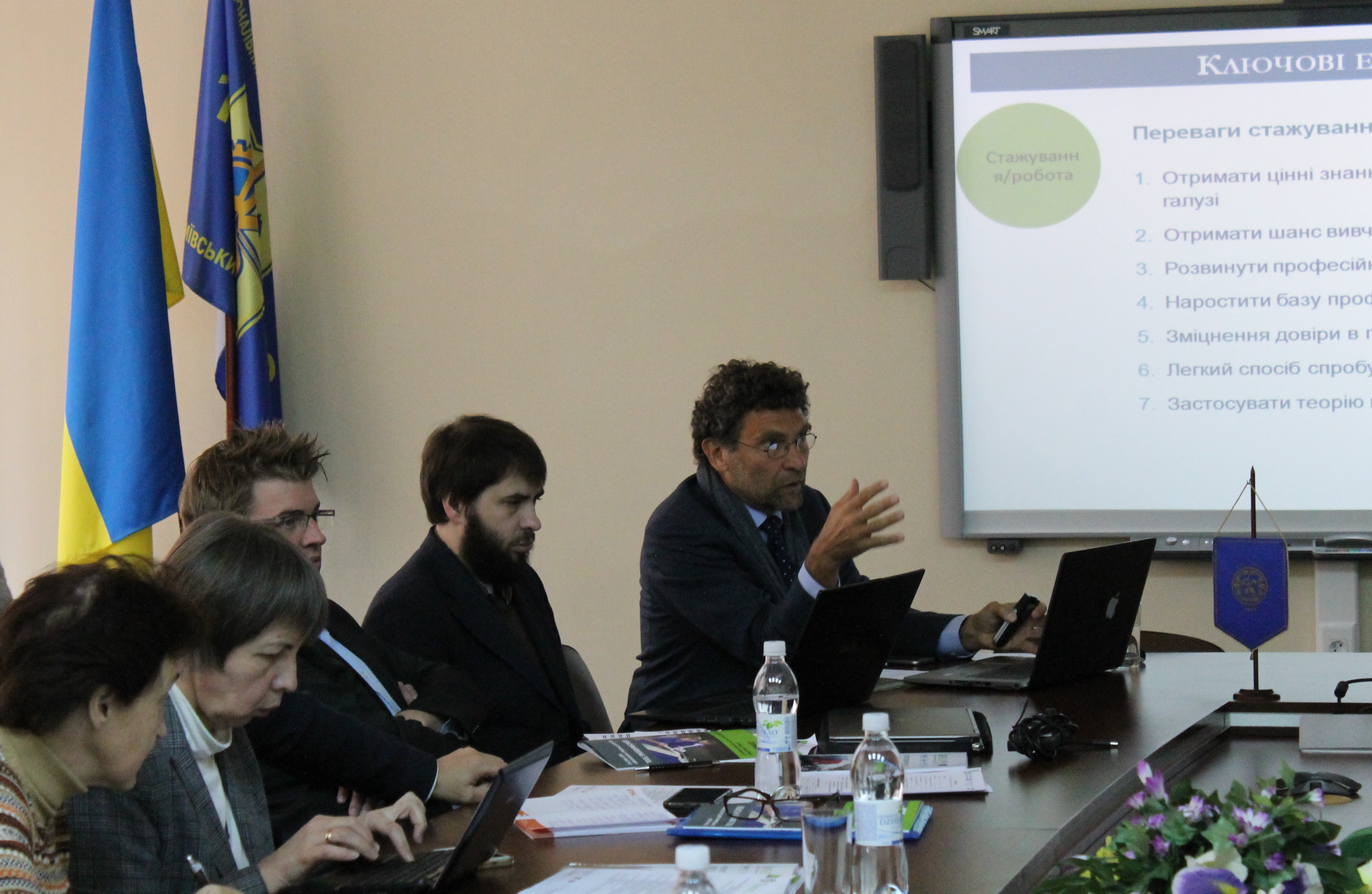


 On November 21, 2017, Igor Sikorsky Kyiv Polytechnic Institute (Kyiv) hosted the information workshop (WS) for university lecturers “Integrating RECP Course into Higher Education: International Prospects”. To ensure the workshop run well the RECP Centre undertook its organization and supervision.
On November 21, 2017, Igor Sikorsky Kyiv Polytechnic Institute (Kyiv) hosted the information workshop (WS) for university lecturers “Integrating RECP Course into Higher Education: International Prospects”. To ensure the workshop run well the RECP Centre undertook its organization and supervision.
The teachers and lecturers from Igor Sikorsky Kyiv Polytechnic Institute (Kyiv), Kyiv Taras Shevchenko National University, NTUU “Kharkiv Politechnic Institute” (Kharkiv), Lviv National Forestry University, National Agrarian University in Bila Tserkva (Kyiv region) etc.
Yurii Yakymenko, the first pro-rector of the National Technical University of Ukraine “Igor Sikorsky Kyiv Polytechnic Institute” started the WS and stressed on the importance of the issue discussed. He pointed out the topicality of RECP integration into university curriculum in view of the present environmental situation within Ukraine and worldwide, the situation that leaves much room to be desired.
The Head of the Department of Ecology and Plant Polymers Technology, Faculty of Chemical Engineering, Mykola Homelia shared his experience accumulated in the course of teaching RECP priciples to the students of the National University (Igor Sikorsky Kyiv Polytechnic Institute).
Andrii Vorfolomeiev, RECP expert, held a PPT presentation “Resource efficient and cleaner production: approaches and case studies of successful implementation at Ukrainian enterprises”. The speaker delivered best available practice in implementing UNIDO RECP concept at national industrial companies.
The international guests Emmanuel Oertlé, representative of the University of Applied Sciences and Arts Northwestern Switzerland (FHNW), and Karim Zein, President of Sustainable Business Association, also visited the WS and actively supported its vital atmosphere by demonstrating PPTs and sharing their viewpoints on challenges towards wide RECP-education.
Kateryna Romanova, National Awareness Expert of the EaP GREEN Project, dwelled on the steps forward to elaborate and integrate RECP course into university curriculum.
The WS first half was logically ended up with a group discussion. All the participants showed key interest and anxiety towards Ukraine’s industry chances in becoming green. Among basic challenges the participants pointed out the following:
The perspectives for RECP specialists to get a RECP-expert position at the industrial enterprises were also discussed at the WS. And these were:
The WS participants summarized the general opinion and belief that RECP course integration into the curriculum is realistic but complicated driven some obstacles, like: special (theme-related) terms variations; lack of qualified teachers capable to deliver the material (from the environmental and technical peculiarities viewpoint) as well as pertaining some practical skills; a gap between business requests to get a RECP expert and the availability of these high-skilled experts, etc.
The WS participants produced the collective keynote that workshops like this, to say nothing of other theme-related educational events, do contribute to gradual overcoming the obstacles in RECP promoting, thus pushing Ukraine forward to sustainable development.